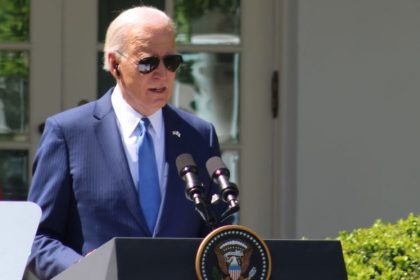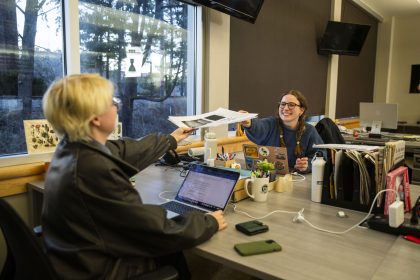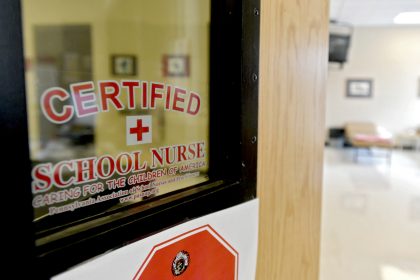International Students On Hold In Wake Of Administration’s Deportation Threat

WASHINGTON – International students at universities across the country have been rattled and confused by a new Trump administration rule that threatens to deport them if they are unable to attend in-person classes in the fall.
The U.S. Immigration and Customs Enforcement Agency on Monday said that foreign students enrolled in programs taught entirely online must leave the country or transfer to another school that offers in-person classes.
Students who defy the rule by staying in the country will “face immigration consequences including, but not limited to, the initiation of removal proceedings,” ICE said in a statement.
President Trump has pressured universities to fully reopen their campuses in the fall, defying advice from his own health experts who say the move could put students and staff at risk during the coronavirus pandemic.
On Monday, the president said school closures were a politically motivated effort to undermine his re-election campaign. “The Dems think it would be bad for them politically if U.S. schools open before the November Election, but is important for the children & families,” he said in a tweet. “May cut off funding if not open!”
Critics have assailed the new immigration decree as a dangerous effort by the Trump administration to bully universities to resume in-person classes despite a recent resurgence of COVID-19 cases in dozens of states.
Now, with just weeks before classes start, America’s more than 1 million foreign students are scrambling to figure out whether they’ll be allowed to pursue their education or forced to pack up and leave.
“It’s awful,” says Siobhan B., an Irish student at the State University of New York who declined to give her last name for fear of deportation. “It’s just put so many people in such a bad spot.”
Like many institutions, SUNY is pursuing a “hybrid” learning model in the fall that mixes virtual learning with some in-person classes. But Siobhan worries that not all foreign students will be able to register for in-person classes due to limited capacity.
“Every single international student at my school is going to be rambling for a chance to get into whatever in-person classes we’re going to be having,” says the philosophy and biochemistry major. “I highly doubt every single one of them is going to be accommodated.”
On top of losing her education, Siobhan could also be putting her health at risk if she is forced to leave the country due to an underlying lung condition that makes her vulnerable to the coronavirus. “Taking a cross-Atlantic flight back to Ireland would not work for me,” she says. “I can’t fly.”
For foreign students, obtaining a U.S. visa or keeping legal immigration status has become particularly difficult during the coronavirus crisis, Siobhan says. Many U.S. embassies across the world have either closed or stopped issuing visas in the last few months.
“When you’re an immigrant student — even without this administration — you constantly have your status in the back of your head,” says Siobhan. “We’re essentially temporary residents of the country with no legal recourse most of the time. It’s hard being a student here and it’s just gotten worse in the past two years.”
Facing severe budget shortfalls due to campus closures and a drop in enrollment numbers, some U.S. colleges are pushing back against the Trump administration’s new rule.
Harvard and the Massachusetts Institute of Technology filed a joint federal lawsuit against DHS and ICE on Wednesday, claiming the new rule “would undermine the education, safety, and future prospects of their international students.”
“We are deeply concerned that the guidance issued today by US Immigration and Customs Enforcement imposes a blunt, one-size-fits-all approach to a complex problem, giving international students, particularly those in online programs, few options beyond leaving the country or transferring schools,” said Harvard President Lawrence Bacow in a statement.
Foreign students contributed nearly $45 billion to the U.S. economy in 2018, making up 5.5% of the total student body at U.S. universities, according to a study published last year by the Institute of International Education.
Martin Basiri, CEO of ApplyBoard, a Canadian website that helps foreign students in U.S. colleges, says his company has received hundreds of calls in the last few days.
“It’s just a lot of anxiety –– a lot of families are worried,” Basiri said. “We are talking about very young people who left their country for a hope of getting a better education,” he added.
Basiri says the timing of the latest DHS ruling leaves many students in the lurch. “Education systems are not designed so that you can easily transfer in your third year or fourth year to another school and continue — especially a month or two before the semester starts,” he says.
Julie Grandjean, a Belgian doctoral student at Texas Tech University, says the current climate for international students in the U.S. has left her feeling “ostracized.”
“I have not told my parents because then they would definitely want me to go back to Belgium right now, which I’m not doing because then I might not be able come back to the U.S. in this situation,” says Grandjean, who is studying visual communications.
Grandjean says she was fortunate to be able to register for an in-person course, though some of her friends weren’t as lucky. “It’s just been very stressful the past couple of days,” she says. ‘It’s been a lot of running around and trying to figure out what to do, how to do it, emailing hundreds of people a day.”
She’s grateful for the help she has received from American friends and from the administration at Texas Tech University. “I feel really supported by my circle, but definitely let down by this administration.”
























